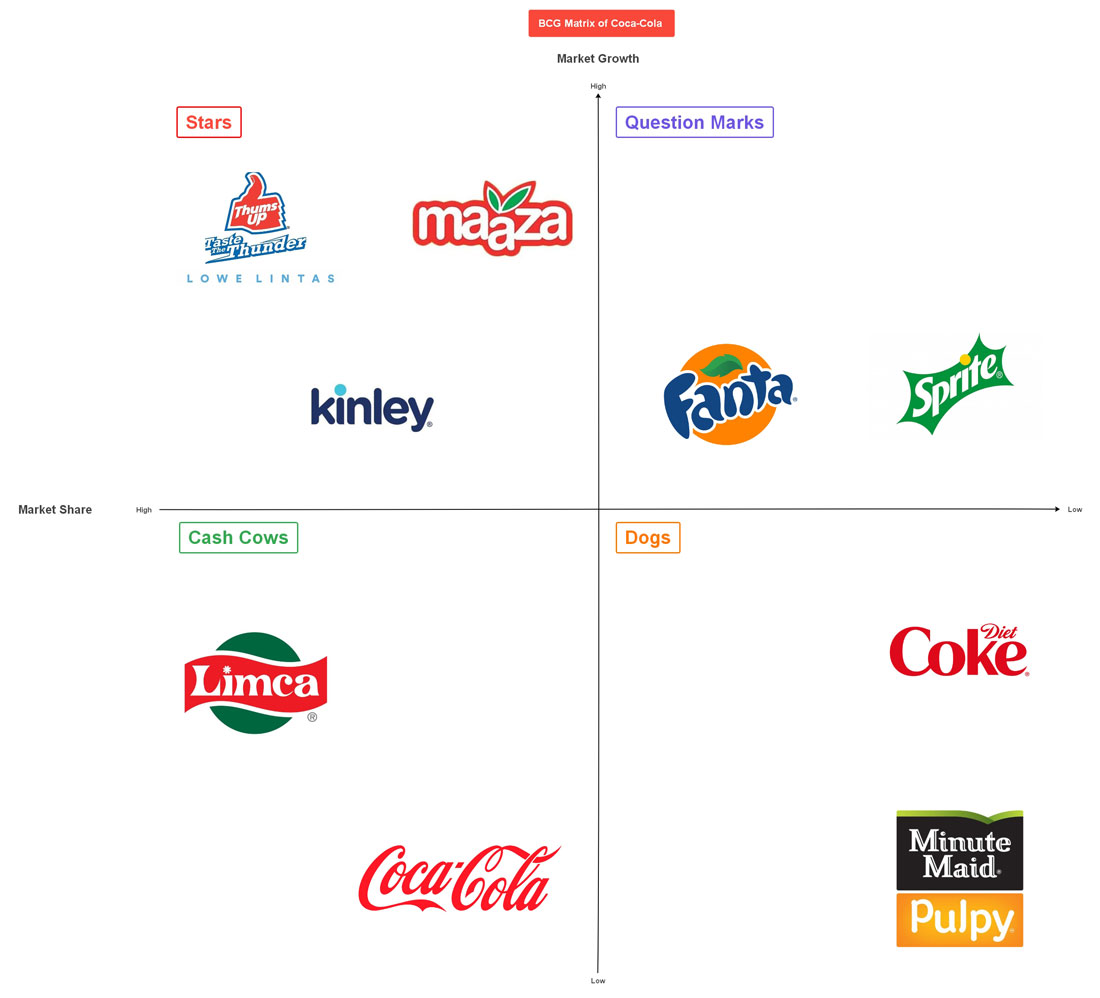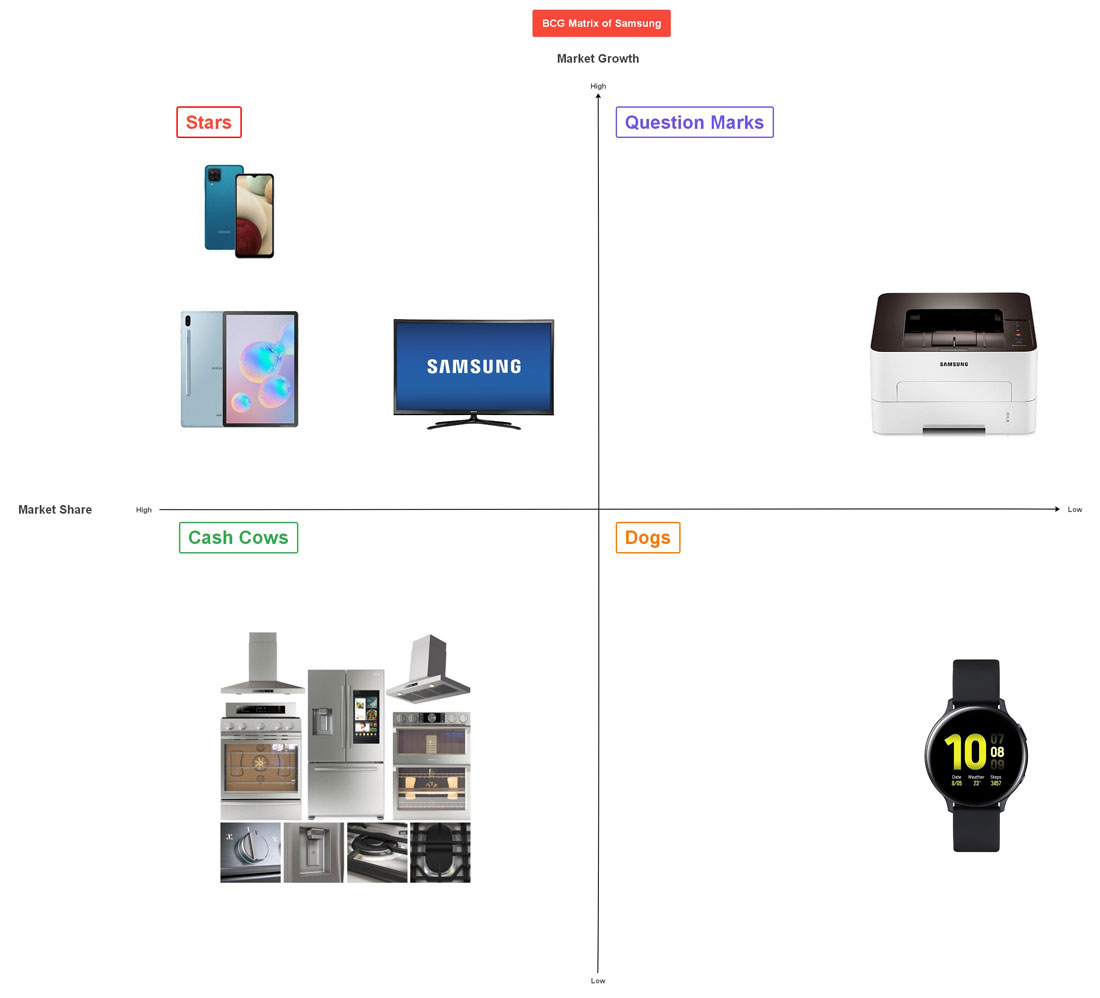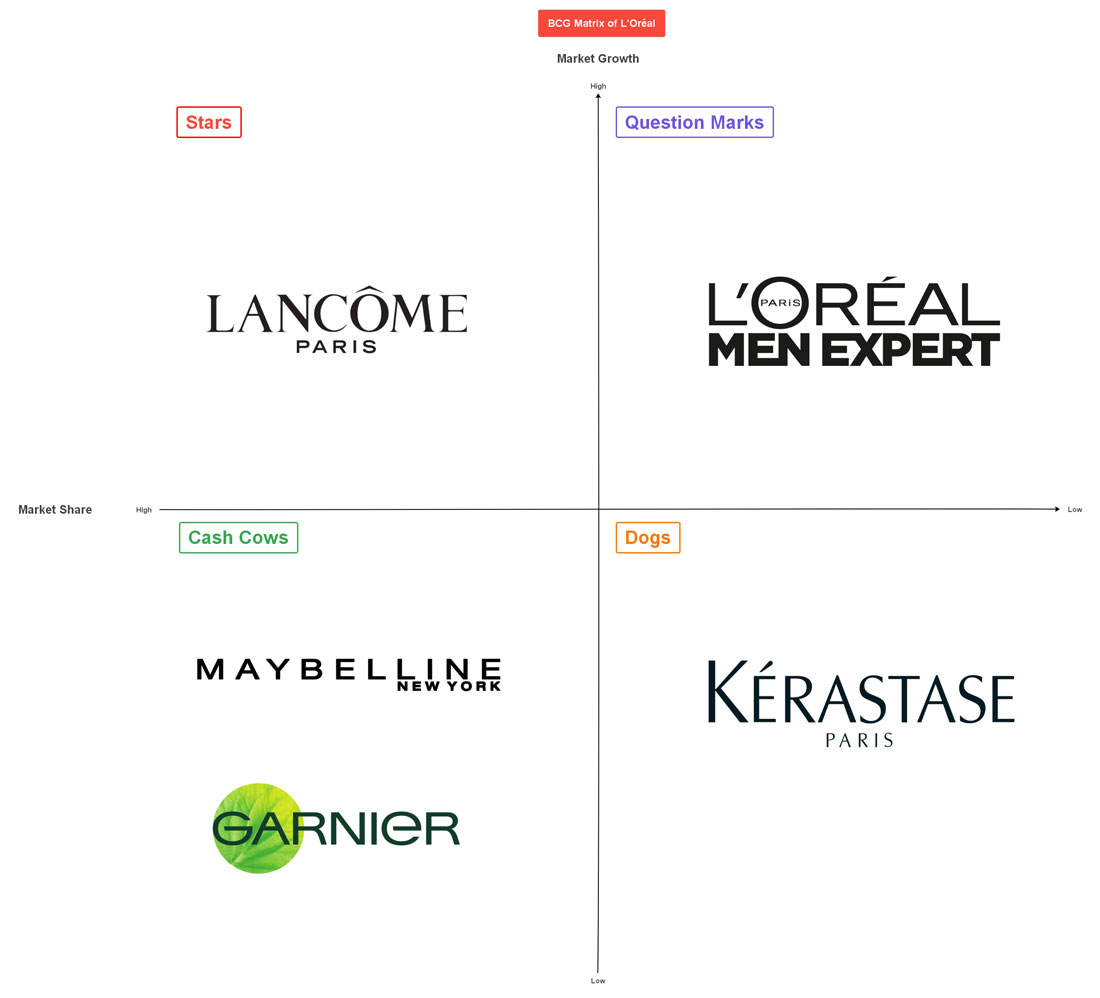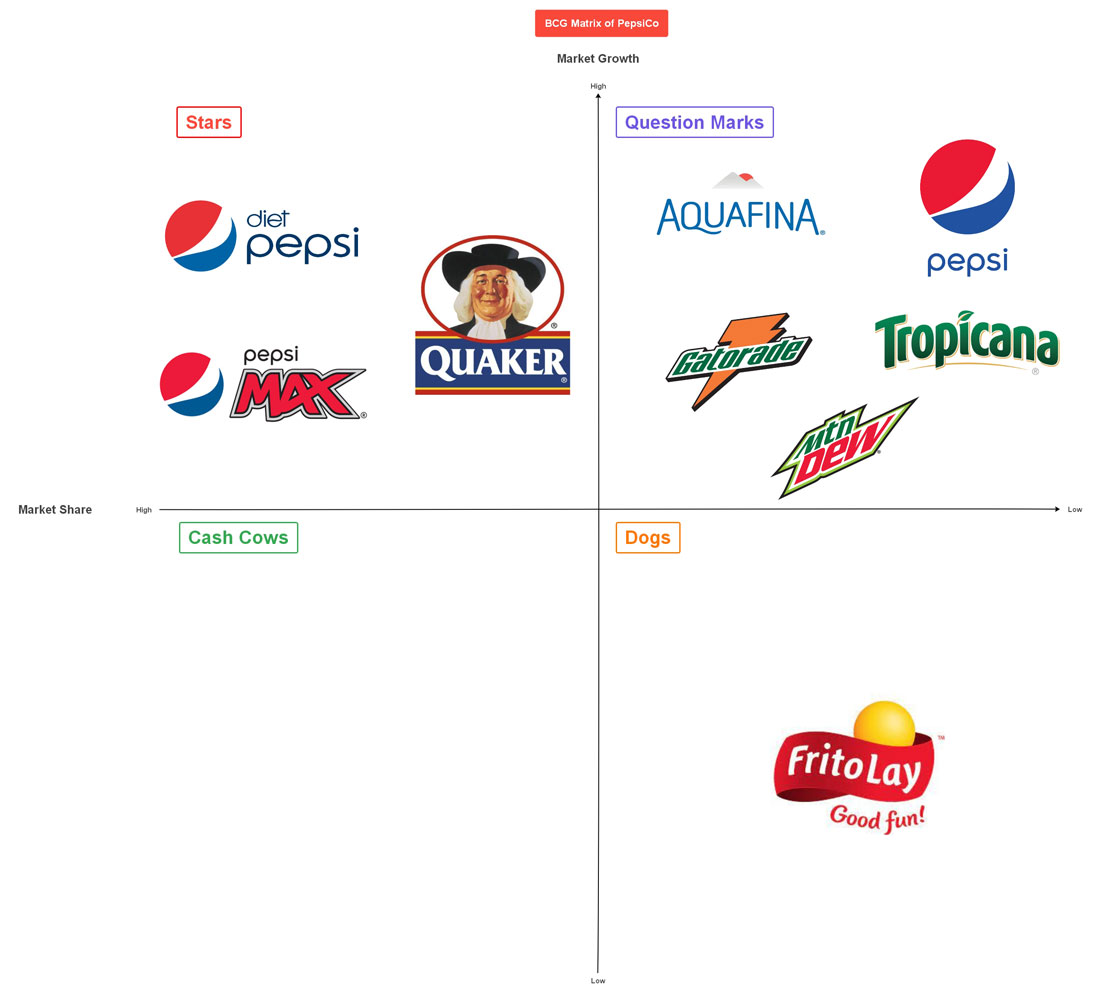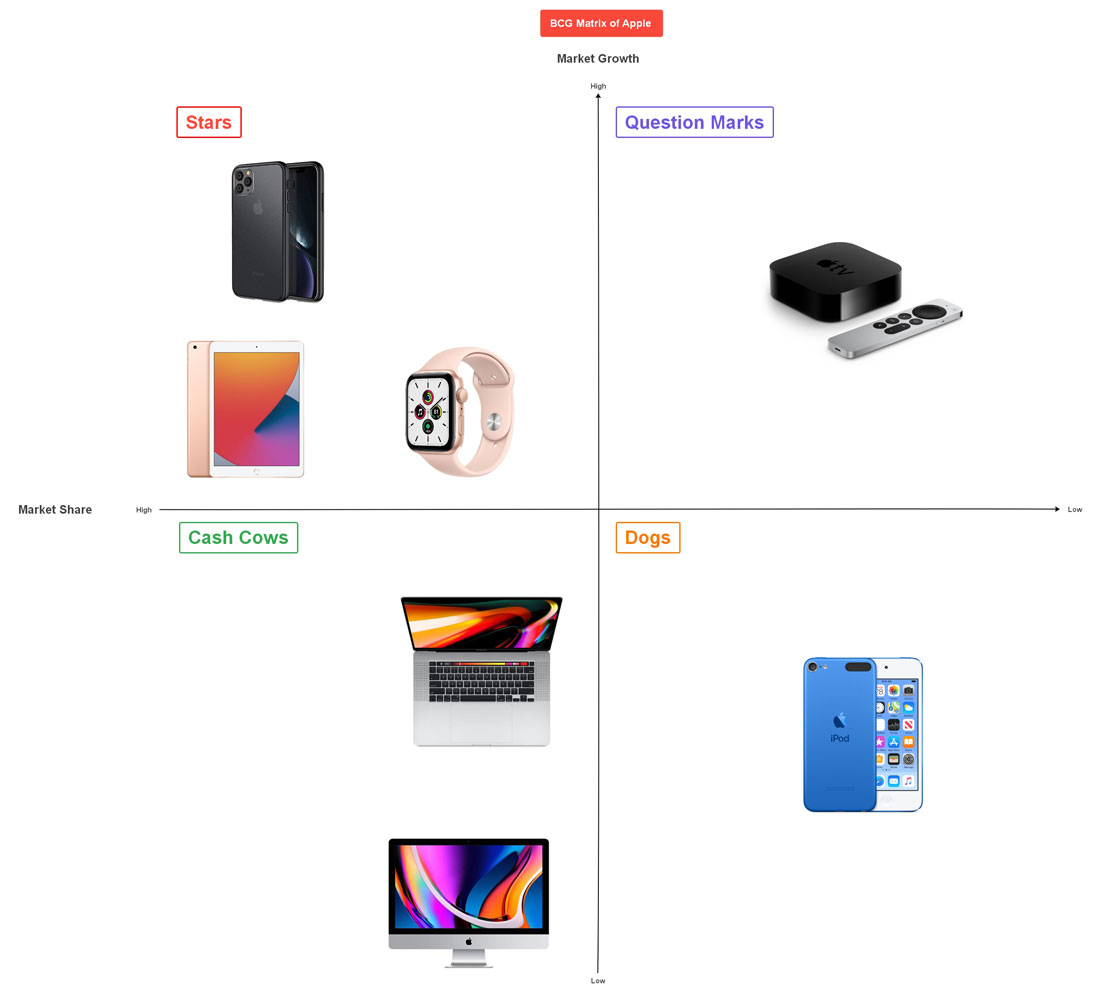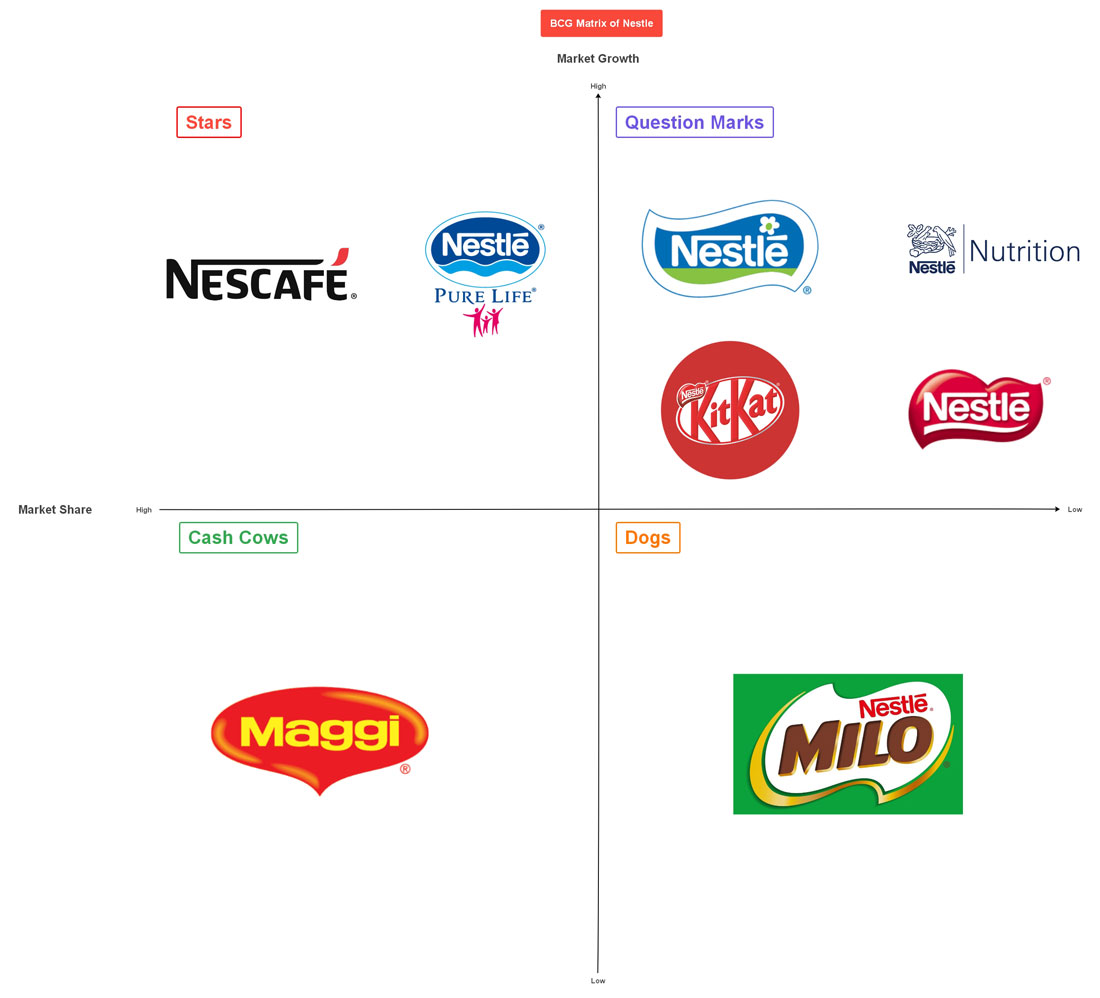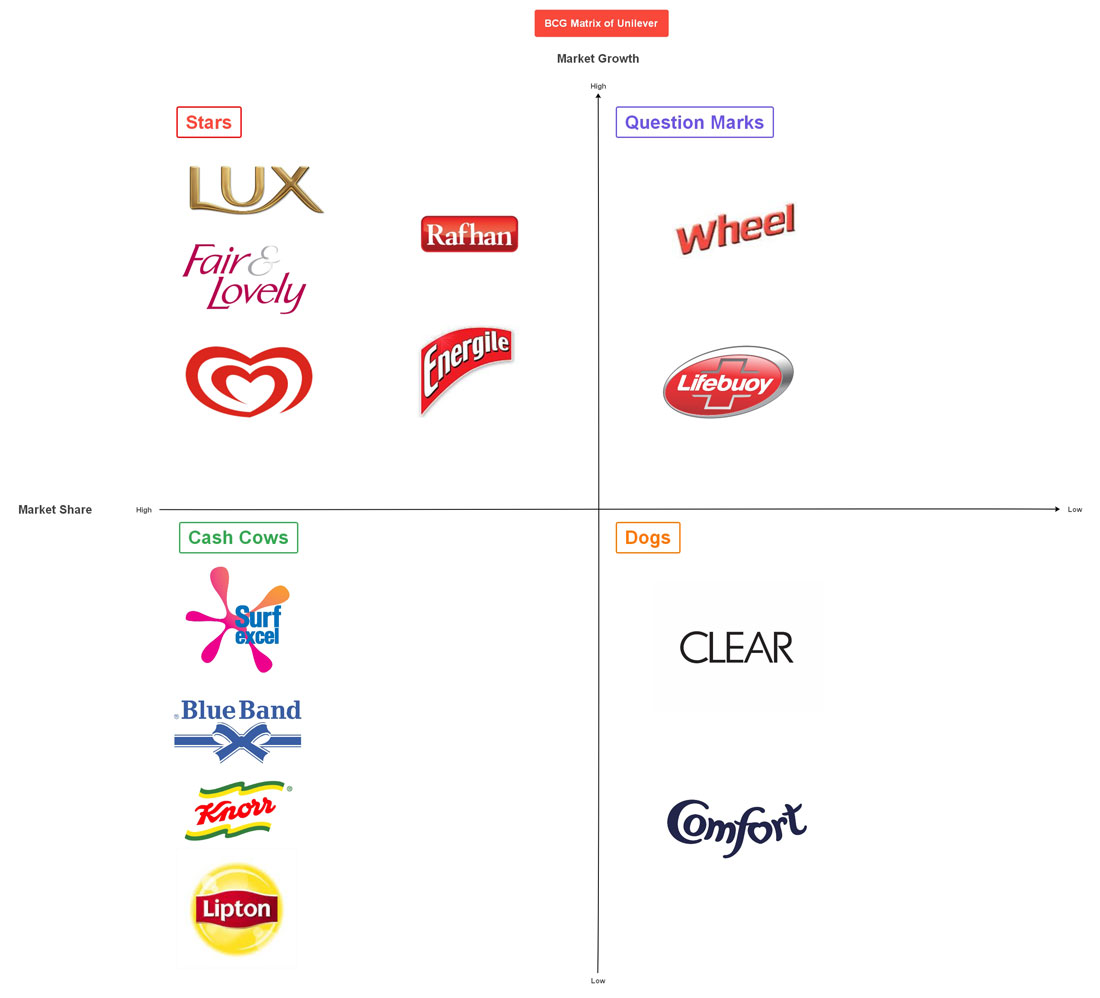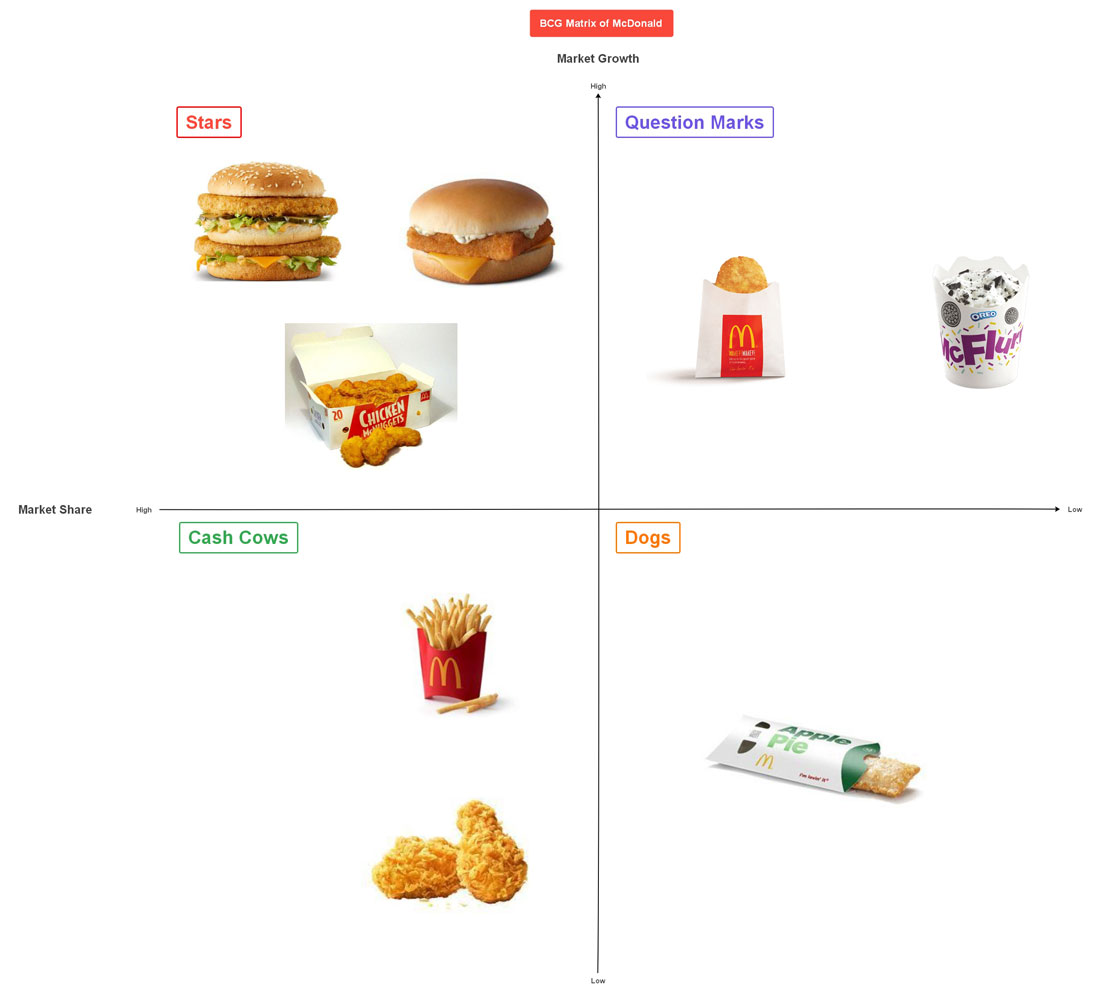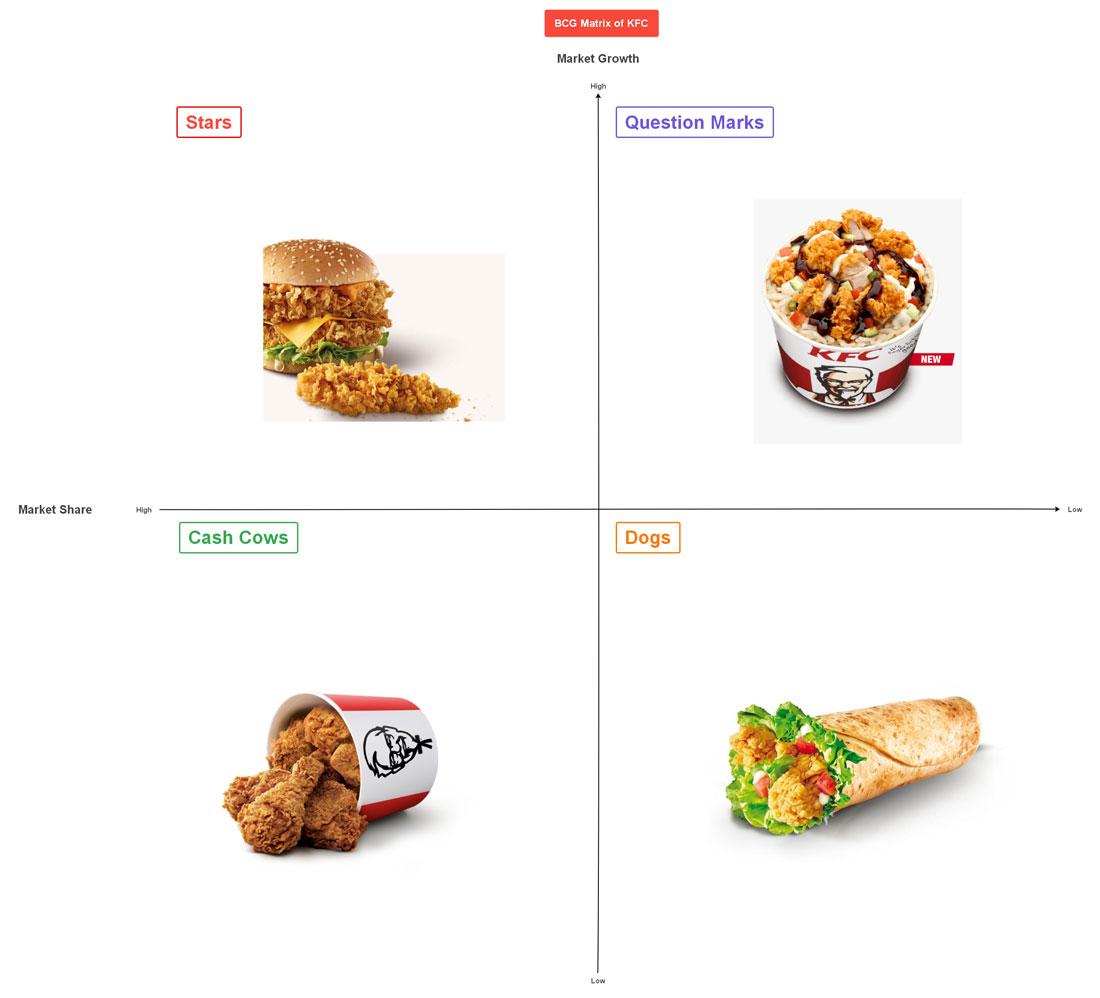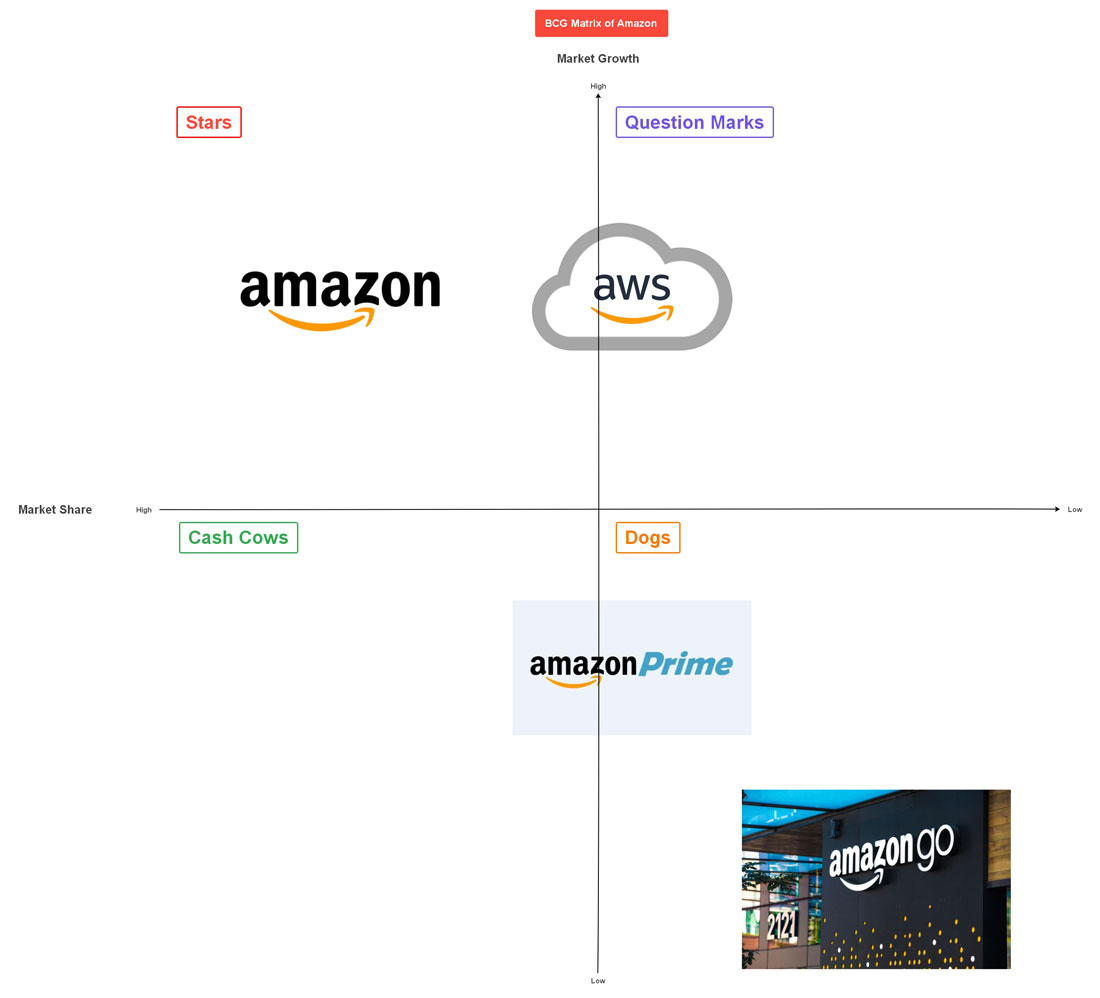Best 10 BCG Matrix Examples for Students
Discover More Helpful Information!
Welcome to EdrawMind!![]() Unleash your creativity and enhance productivity with our intuitive mind mapping software.
Unleash your creativity and enhance productivity with our intuitive mind mapping software.
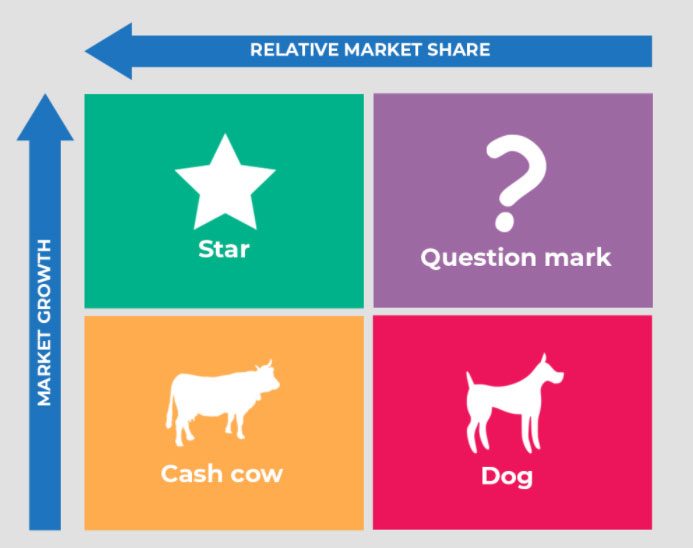
Source: professionalacademy.com
BCG Matrix is an apparatus utilized to incorporate methodology to break down specialty units or product offerings dependent on two factors: relative piece of the overall industry and the market development rate. By joining these two factors into a matrix, an organization can plot their specialty units as needs are and figure out where to dispense extra (financial) assets, where to money out, and where to strip.
The primary reason for the BCG Matrix is accordingly to settle on speculation choices on a corporate level. Contingent upon how well the unit and the business are doing, four different classification names can be credited to every group:
- Dogs
- Question Marks
- Cash Cows
- Stars
This article covers every classification and how to utilize the BCG Matrix appropriately.
10 Examples of BCG Matrix (of famous companies)
The BCG Model depends on items as opposed to administrations, be that as it may, it applies to both. You could utilize this if checking on a scope of items, particularly before growing new ones. Here are the example list:
1. BCG Matrix of Coca-Cola
A world-driving ready-to-drink refreshment company, Coca-Cola Company has more than 500 soda pop brands, from Fuse Tea to Oasis to Lilt to Powerade. Yet, none of them is anyplace near the coke brand in terms of mindfulness, income, and benefit.
Stage 1. Choose the Product/Firm/Brand
We pick the firm Coca-Cola for investigation. Also, you need to identify the market, as the picked market is beverages, diet cokes, and mineral water.
Stage 2. Calculate Relative Market Share & Find out the Market Growth Rate
By and tremendous Growth rate in Coke is that it is no: in more than 200 countries.
Stage 3. Draw the Circles on a Matrix
2. BCG Matrix of Samsung
Stage 1. Choose the product/firm/brand
We pick the firm Samsung for investigation.
Stage 2. Calculate Relative Market Share & Find out the Market Growth Rate
The picked market is the consumer electronics industry which incorporates smartphones, computers, tablets, etc.
Stage 3. Calculate Relative Market Share
By and tremendous Growth rate in Samsung home appliances by making 60% of the sales.
Stage 4. Draw the circles on a matrix
3. BCG Matrix of L'Oréal
Stage 1. Choose the product/firm/brand
We pick the firm L'Oréal for investigation.
Stage 2. Identify Market
The picked market is the Cosmetics Industry, which essentially incorporates Skincare, Makeup, Haircare, Hair shading, and Fragrances.
Stage 3. Calculate Relative Market Share
Stage 4. Find out the Market Growth rate
By and tremendous Growth rate in Cosmetics Industry (starting at 2018) = 4.8%
Stage 5. Draw the circles on a matrix
Note: Just follow the above pattern with every example and BCG matrix you will be making for your class.
4. BCG Matrix of PepsiCo
5. BCG Matrix of Apple
6. BCG Matrix of Nestle
7. BCG Matrix of Unilever
8. BCG Matrix of McDonalds
9. BCG Matrix of KFC
10. BCG Matrix of Amazon
What is BCG Matrix?
The Boston Consulting Group's item portfolio matrix (BCG matrix), otherwise called the Growth/Share Matrix, is a vital arranging device that enables a business to consider development openings by inspecting its arrangement of items to choose where to contribute to suspend or create things. It's otherwise called the Growth/Share Matrix. The Matrix is separated into four quadrants dependent on an investigation of market development and the relative peace of the overall industry.
It depends on the mix of market development and the overall industry comparative with the following best contender.
1. Stars
High Growth, High Market Share
Star units are pioneers in the classification. Items situated in this quadrant are appealing as they are located in a hearty class, and these items are exceptionally serious in the classification.
2. Question Marks
High Growth, Low Market Share
Like the name proposes, the future capability of these items is dubious. Since the development rate is high here, with the correct systems and ventures, they can become Cash cows and, at last, Stars if they have a flat piece of the overall industry so that off-base ventures can downsize them to Dogs significantly after loads of speculation.
3. Cash Cows
Low Growth, High Market Share
In the long run, if you are working for quite a while working in the business, advertising development may decay, and incomes deteriorate. At this stage, your Stars are probably going to change into Cash Cows. Since they despise everything that has a substantial relative piece of the overall industry in a deteriorating (developed) market, benefits and cash streams are relied upon to be high. As a result of the lower development rate, ventures required ought to likewise below. Along these lines, cash cows ordinarily produce cash in an overabundance of the measure of money expected to keep up the business. This 'overabundance cash' should be 'drained' from the Cash Cow for interests in different specialty units (Stars and Question Marks). Cash Cows eventually carry parity and security to a portfolio.
4. Dogs
Low Growth, Low Market Share
Dogs hold a flat piece of the overall industry contrasted with contenders. Neither do they create cash, nor do they require huge cash. As a rule, the resources are not worth putting into because they create low or negative cash returns and may need enormous entireties of money to help. Because of the flat piece of the pie, these items face cost inconveniences.
How to Make a BCG Matrix Diagram?
So far, we realize products are ordered in four sorts. Presently we will see on what premise and how that order is done. We will comprehend the five procedures of improving a BCG matrix by making one for L'Oréal in the areas to follow.
Stage 1. Choose the Product
BCG matrix can be utilized to operate Business Units, separate brands, products, or firms as a unit itself. The decision of the group impacts the entire investigation. Along these lines, characterizing the unit is essential.
Stage 2. Define the Market
A mistakenly characterized market can prompt a weak characterization of products. For instance, if we investigate Daimler's Mercedes-Benz vehicle brand in the traveler vehicle market, it would wind up as a dog (it holds under 20% relative market share). However, it would be a cash cow in the extravagant vehicle market. Characterizing the market is a significant pre-imperative for a better understanding of the portfolio position.
Stage 3. Calculate the Relative Market Share
Market share is the level of the entire market taken into account by your company, estimated either in income terms or unit volume terms.
We utilize Relative Market Share in a BCG matrix, contrasting our product deals and the main adversary's sales for a similar product.
Relative Market Share = Product's business this year/Leading opponent's business this year
For instance, if your rival's market share in the vehicle business was 25% and your association's image market share was 10% around the same time, your relative market share would be just 0.4. The relative market share is given on the x-axis.
Stage 4. Find out the Market Development Rate
The business development rate can be effortlessly found through free online sources. It can likewise be determined by deciding the healthy income development of the leading firms. The market development rate is estimated in rate terms.
Market development rate was typically given side-effects (business this year – Product's business a year ago)/Product's business a year ago.
Markets with high development are ones where the total market share accessible is growing, so there are a lot of chances for all organizations to bring in cash.
Stage 5. Draw the Circles on a Matrix
Having determined the above measures, you have to plot the brands on the Matrix simply on EdrawMind desktop version. It has the premade templates for BCG. All you have to do is put up the data just like we did with every example.
The x-axis shows the relative market share, and the they-pivot shows the business development rate. You can plan a hover for every unit/brand/product, the size of which ought to relate to the extent of income created by it in a perfect world.
Conclusion
Taken these variables together, you can attract the perfect way to follow the BCG Matrix, from start-up to market pioneer. Question Marks and Stars should be financed with ventures produced with Cash Cows. What's more, Dogs should be stripped or exchanged to let loose cash with minimal potential and use it somewhere else. At long last, you will require a reasonable arrangement of Question Marks, Stars, and Cash Cows to guarantee positive cash streams later on.


